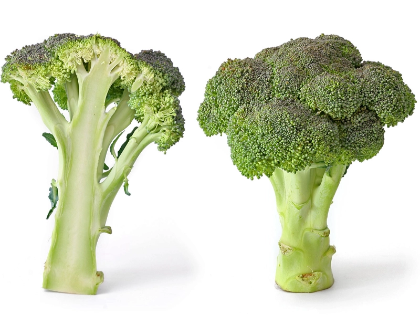The Importance of Vitamin K in Blood Sugar Regulation
1. Know about vitamin K. Usually associated with blood clotting, vitamin K is a fat-soluble vitamin that is absolutely vital for many different body processes. Recent research, nevertheless, have underlined its possible importance in blood sugar control. Found in green leafy vegetables, K1 (phylloquinone) and K2 (menaquinone) are two major forms of vitamin K; animal products and fermented meals include K2. Knowing how vitamin K supports metabolic activities helps one to better appreciate its function in preserving appropriate blood sugar levels.
2. The Interplay of Insulin Sensitivity and Vitamin K The degree to which the body reacts to insulin—the hormone in charge of controlling blood sugar levels—is known as insulin sensitivity. A precursor of type 2 diabetes, insulin resistance results from low insulin sensitivity. Studies have shown that appropriate amounts of vitamin K could improve insulin sensitivity. Those who are already managing diabetes or those who run the danger of developing it should especially pay great attention to this. Vitamin K can help more precisely control blood sugar levels by raising insulin sensitivity.

 5. Dietary Vitamin K Sources Including foods heavy in vitamin K into your diet is really simple. Excellent providers of vitamin K1 are leafy greens including kale, spinach, and Swiss chard. For those wishing to incorporate vitamin K2, fermented foods such certain cheeses, sauerkraut, and natto are helpful. Other foods with good combinations of both types of vitamin K include fish, Brussels sprouts, and broccoli. Including these foods often in your meals will enable you to guarantee your vitamin K intake.
6. The Effect of Lack Though it is somewhat unusual, vitamin K shortage can have major negative effects on health. Lack of vitamin K may compromise blood coagulation and possibly damage bone health. Emerging studies point to vitamin K insufficiency possibly causing metabolic malfunction and insulin resistance as well. Maintaining not only appropriate blood clotting but also best metabolic health depends on enough intake of vitamin K.
5. Dietary Vitamin K Sources Including foods heavy in vitamin K into your diet is really simple. Excellent providers of vitamin K1 are leafy greens including kale, spinach, and Swiss chard. For those wishing to incorporate vitamin K2, fermented foods such certain cheeses, sauerkraut, and natto are helpful. Other foods with good combinations of both types of vitamin K include fish, Brussels sprouts, and broccoli. Including these foods often in your meals will enable you to guarantee your vitamin K intake.
6. The Effect of Lack Though it is somewhat unusual, vitamin K shortage can have major negative effects on health. Lack of vitamin K may compromise blood coagulation and possibly damage bone health. Emerging studies point to vitamin K insufficiency possibly causing metabolic malfunction and insulin resistance as well. Maintaining not only appropriate blood clotting but also best metabolic health depends on enough intake of vitamin K.
 7. Synergistic Actions of Nutrients Vitamin K interacts with other nutrients to support general health; it is not working alone. For example, vitamin D helps to control calcium metabolism and can intensify the benefits of vitamin K on bone condition. Likewise, the operation of insulin depends on magnesium and zinc. A balanced diet including a range of vitamins and minerals will enhance the synergistic benefits of these nutrients, therefore encouraging improved blood sugar control and general health.
8. Blood Sugar Control and Lifestyle Considerations Although vitamin K consumption from food is crucial, other lifestyle choices also help to control blood sugar levels. Blood sugar control depends critically on regular physical activity, a good weight, and stress management. Combining these good lifestyle choices with a nutrient-dense diet including vitamin K will help to improve metabolic health and blood sugar control.
7. Synergistic Actions of Nutrients Vitamin K interacts with other nutrients to support general health; it is not working alone. For example, vitamin D helps to control calcium metabolism and can intensify the benefits of vitamin K on bone condition. Likewise, the operation of insulin depends on magnesium and zinc. A balanced diet including a range of vitamins and minerals will enhance the synergistic benefits of these nutrients, therefore encouraging improved blood sugar control and general health.
8. Blood Sugar Control and Lifestyle Considerations Although vitamin K consumption from food is crucial, other lifestyle choices also help to control blood sugar levels. Blood sugar control depends critically on regular physical activity, a good weight, and stress management. Combining these good lifestyle choices with a nutrient-dense diet including vitamin K will help to improve metabolic health and blood sugar control.
 9. An crucial vitamin with many functions in blood sugar control is summary vitamin K. Vitamin K supports general metabolic health, lowers inflammation, and increases insulin sensitivity, therefore helping to control blood sugar levels. Together with keeping a good lifestyle, including foods high in vitamin K into your diet will help to improve your health. Knowing how important vitamin K is for blood sugar control would enable people to choose their diets wisely so as to support their general well-being and metabolic condition.
9. An crucial vitamin with many functions in blood sugar control is summary vitamin K. Vitamin K supports general metabolic health, lowers inflammation, and increases insulin sensitivity, therefore helping to control blood sugar levels. Together with keeping a good lifestyle, including foods high in vitamin K into your diet will help to improve your health. Knowing how important vitamin K is for blood sugar control would enable people to choose their diets wisely so as to support their general well-being and metabolic condition.








